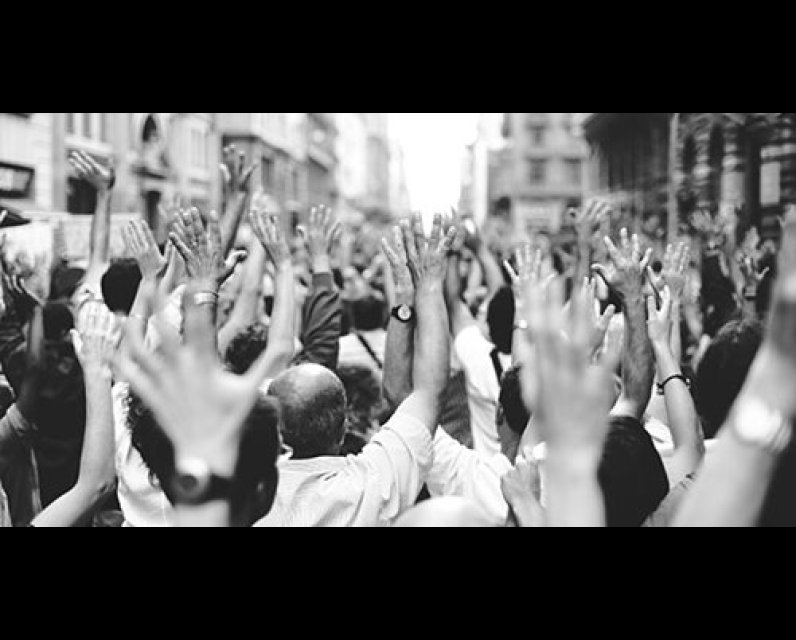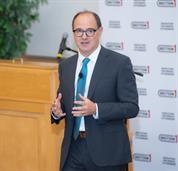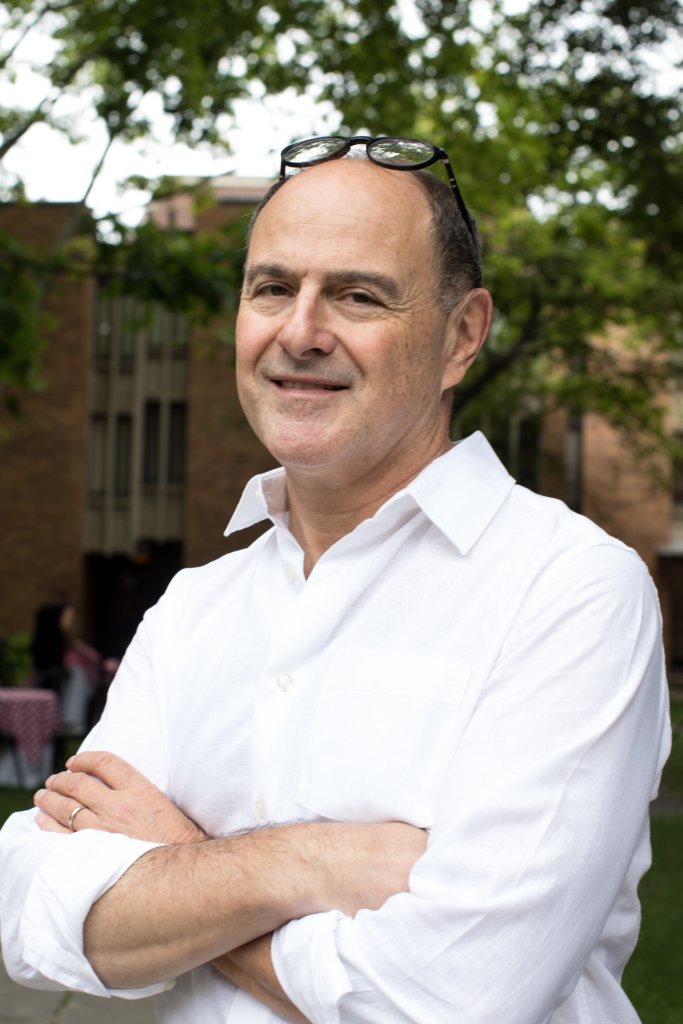Unpublished Opinions
Founder and President of democracy think-tank, Section 1, Senior Fellow of Massey College, Centre Associate of the UBC Centre for Constitutional Law and Legal Studies, Canadian International Council Advisory Board Member, Chair Emeritus of the Jane Goodall Institute, and editor, most recently, of The Notwithstanding Clause and the Canadian Charter (McGill-Queen`s University Press)
Democracy, the first casualty of the war on truth

This article responds to the growing role that the war on truth is playing in the democratic backsliding that is occurring throughout the West. It's premise is that there can be no liberal constitutional democracy without a shared epistemic foundation - i.e., a societal deference to the authority of facts, knowledge and "truth". That shared epistemic foundation has been blown to smithereens by a concerted, multi-pronged, assault on the very idea of "truth" , both in science and in journalistic reporting. Instead of a vibrant public square hosting a marketplace of ideas, we have only "info-wars" and "alternative facts". Liberal democracy cannot be sustained under such conditions.
-
 Peter L. Biro FRSA
Peter L. Biro FRSA
FOUNDER of SECTION 1, Educator, NGO Leader, Corporate CEO, Lawyer: Education for Heroic Citizenship
The Greek poet, Aeschylus famously observed that in war, truth is the first casualty. Peter L. Biro FRSA argues that, in the wake of the Trump presidency and of the democratic backsliding that has been in process throughout the West, in the war on truth, the first casualty is democracy. He explores this with an eye on Canada’s opportunity to provide leadership in a global effort to rehabilitate public confidence in the importance of a shared truth and in a functioning marketplace of ideas.
The assault on truth and on truth-seeking, poses the greatest threat to liberal constitutional democracy – here in Canada – and around the world. This assault is both by design and direct means and is an unintended, but inescapable, consequence and function of the fragmentation and polarisation produced by the current medium of mass communication; the internet and its social media subcultures.
We are witnessing, in real time, George Orwell’s prophecy play out, as an American President, along with his partisan enablers and co-conspirators, tell an astonishingly receptive constituency that white is black and black is white. The American political commentator and author, Thomas Friedman, described the state of affairs this way in a recent New York Times column (10 November 2020): “Auto sales and durables were each down 10 percent last quarter; but lying grew 30 percent and economists predict that the lying industry could double in 2021.”
The causes of democratic backsliding throughout the West are complex and the reasons are many. Not surprisingly, the usual suspects head up the list. First, the exponentially increasing economic inequality (see for example, Lars Osberg’s 2018 analysis of the rise of Canada’s 1% richest), both as to income gap and, especially, as to wealth disparity, creating fertile ground for systemic destabilisation.
Second, the rise of populism in response to the increasing general, and, indeed, cultivated, mistrust in the effectiveness and integrity of established institutions such as the administrative agencies of the state that are presumed to be the repositories of universal knowledge and expertise, including the professional civil service, the centres of learning and research, as well as the legislative bodies and regulatory agencies. Populism, with its natural hostility to pluralism, has also risen in response to an increasingly multi-ethnic, multicultural demographic.
Third, the failure of political parties to perform their traditional filtration function of weeding out aspiring autocrats and demagogues and those otherwise unfit for leadership roles in a liberal democracy. This was, of course, the story of the 2015 Republican primary in the US. And finally, a weak civic culture resulting from, among other things, the complete failure of public education to teach civics and to instill in our students and future democratic citizens the sense of civic duty to defend political liberty.
Of course, there are other factors and other reasons for the backsliding. Among them is the willingness of leaders to depart from the norms and conventions of liberal democracy. This includes disregarding the independence of the judicial and prosecutorial branches of government, rebuffing the efforts of the legislative branch to conduct oversight of the executive branch, attacking press freedom and independent journalism, and denying the political legitimacy of one’s partisan opponents. And, shockingly, it now extends, even in the world’s oldest democracy, undermining and belittling free, fair and meaningful elections – those where there is a genuine possibility of power changing hands – and, as corollary, frustrating and even denying the peaceful transfer of power from one administration or government to the next.
The war on truth
But all of these factors, in one form or another, are either grounded in or further aggravate what we might call the ‘war on truth'; that is, the assault on what I refer to as the shared epistemic foundation, that broad societal deference to the authority of fact, knowledge and truth so essential to the existence of an effective marketplace of ideas which a functioning liberal constitutional democracy cannot do without.
What are the consequences for our democracy of a compromised epistemic foundation? The result is increasing public skepticism about and lack of trust in public statements emanating from government agencies and from experts. As we have seen, this can be about the size of the national debt, the number of refugees seeking to enter the country, the rate of violent crime broken down by demographic category, the CO2 and greenhouse gas emissions rate by country, by industry and by region, the relationship between mask-wearing and Covid-19 transmission, and so on. What this means is that there can be no consensus-generation informed either by empirical evidence or by reason. It was already apparent that the war on truth was making it near-impossible to produce societal consensus across partisan or ideological lines. But the problem has now become even more acute. It is increasingly difficult, if not impossible, to muster popular support for a policy or for any course of action predicated only or principally on truth, that is, on some authoritative statement of fact.
That leaves only two other ways for leaders to elicit mass support for any government or societal initiative: propaganda and coercion, or some combination thereof. But this spells the end of a genuine democracy, that is, of a civil society in which political action is defined by the extent to which citizens actualize their agency, their civic potentiality, collectively. This is to be distinguished from a civil society in which citizens are bamboozled and defrauded and intimidated into some kind of conformity masquerading as free and voluntary engagement and self-government. We see too many examples of this condition around the world and, indeed, in our own midst. The current US administration has led the way in this regard for the past four years and it would be naïve to deny the level of success with which its concerted policy of misinformation and disinformation has met.
Ronald Deibert, Director of the Citizen Lab at the Munk Centre in Toronto, writes of needing to “reclaim the internet for civil society”. The broadcaster and author, Nina Schick, writes of deepfakes and the coming “Infocalypse” and Marcus Kolga, founder of Disinfowatch, writes about the deleterious effect of disinformation on democracy and human rights. They are talking about the same thing, namely, the assault on truth, the hijacking of the contemporary information highway in the name of the democratisation of communication and, indeed, of community-building, but not, in fact, in the cause or service of democracy itself.
The Canadian context
So, what are the ramifications for Canada’s aspirations and responsibilities vis-à-vis the promotion of freedom and democracy within the community of nations?
It goes without saying that, as a classic ‘middle power’, Canada can’t expect to influence the international community, especially the great powers – democratic and otherwise – of its own accord and on its own steam. Canada’s influence will be greatest as an active and vocal collaborator in an alliance of like-minded nations. That is why Canada has traditionally been a strong and supportive member at the UN, in NATO, in NORAD (the North American Aerospace Defense Command), in the OECD, in la Francophonie and in various international treaties whose objects range from protection of the global fish stocks to protection of the ozone to human rights and to the treatment and rights of prisoners of war, and so on. And, if the backsliding is to be stopped and liberal democracy is to be saved, rehabilitated and further promoted abroad, Canada must similarly seek to generate consensus amongst its allies in a sophisticated and multi-pronged response to the war on truth.
Especially in the wake of Trump’s presidency, the mere rehabilitation of multilateralism will itself prove to be a critical piece of any Canadian international engagement on this problem. At the same time, we must not forget that, at least part of the price to be paid for entering into more or less binding undertakings with our allies and other nations results in a certain loss of national sovereignty. The Turkish economist and Harvard professor, Dani Rodrik, articulated this as a trilemma; in the context of global economic cooperation, it is impossible to attain economic hyper globalisation, national sovereignty and democracy simultaneously, because only two of these things can be achieved at any one time.
But be that as it may, we must turn our own nation’s mind to the problem and must develop a national attitude of mind, codified in whatever form of resolution Parliament might be cajoled into adopting, regarding the very real and active threat that the war on truth poses for the quality and integrity of our own democracy and for those of our neighbours.
During the near decade when Stephen Harper was Canada’s prime minister, an initiative was proposed that would see the establishment of a Canadian Democracy Promotion Agency whose mission would be to sponsor the work of institution-building in emerging democracies and in countries in which there is a national yearning or aspiration for democratic government. There is today, thanks to the efforts of democracy scholars and advocates such as Thomas Axworthy, some prospect of such an agency coming into being, although the Covid-19 pandemic has pushed the initiative onto the legislative backburner. But, if by ‘democracy promotion’, we mean a policy of exporting our own model to less developed, less fortunate – read ‘less enlightened’ – societies, it will not always bear fruit and can sometimes even be counterproductive.
Institution building, yes. Law reform and election models, certainly. International human rights standards, absolutely. But moralising and virtue signaling on the international stage, particularly when we have yet to get our own house in order – especially regarding the status, standing and quality of life of our indigenous peoples – will not advance the core objective of actually causing democracy to grow and to spread. But the virtue signaling – and there has been much of it emanating from Ottawa in recent months and years – has produced little in the way of actual human rights advances or of increased democratisation in any of the countries in which we have sought to sway policies and practices or to secure the release of imprisoned democracy and human rights activists.
I suggest that one of the mandates of any Canadian Democracy Promotion Agency must be to tackle, head-on and in a systematic way, the assault on truth and on the deconstruction of our quickly vanishing shared epistemic foundation. This will require government to train its critical eye on the proliferation of disinformation, on cyber-security, and on the regulation of the internet giants that provide safe harbour for false conspiracy theories in the name of protecting free speech. And it will, most critically, demand of our civil society that it prioritize civics education which, up to this point, has failed to discharge its most fundamental responsibility, namely, to instill in our students a sense of duty to come to the defense of political liberty and to resist unaccountable government. This is no modest objective, to be sure, but unless we make it a policy priority, there will be no genuine marketplace of ideas, no societal capacity to generate consensus, on challenges great and small, across partisan, ideological, cultural and socioeconomic lines and, therefore, no liberal democracy to speak of.
In its mission statement, in addition to its institution-building role, a future Canadian Democracy Promotion Agency should adopt wholesale the mandate of Disinfowatch: “… to build long-term resilience against mis/disinformation in society, recognizing that it is now more important than ever for western democratic societies to expose and raise awareness of mis/disinformation as malign foreign and domestic actors seek to confuse and polarize our societies using a mix of hoaxes, conspiracy theories, blatant fabrications and propaganda.”
Without a societal deference to the authority of facts, knowledge and truth, there can be no liberal constitutional democracy. Canada should take the lead on this file and should seek to generate a consensus with its allies and other like-minded nations. The stakes for civil society could not be higher.
Peter L. Biro is the Founder of Section 1 and Editor of Constitutional Democracy Under Stress: A Time For Heroic Citizenship (Mosaic Press). He is a lawyer, CEO of Newcon Optik, Chair Emeritus of the Jane Goodall Institute Global and a Fellow of the Royal Society of Arts. This blog is based on remarks delivered to the Canadian International Council, on the occasion of its webinar, “Democracy in Crisis: International Dimension: Canadian Role Bolstering Established Democracies”, Toronto, November 12, 2020.



Comments
Be the first to comment